Yanukovych seriously ill in hospital after suffering a heart attack
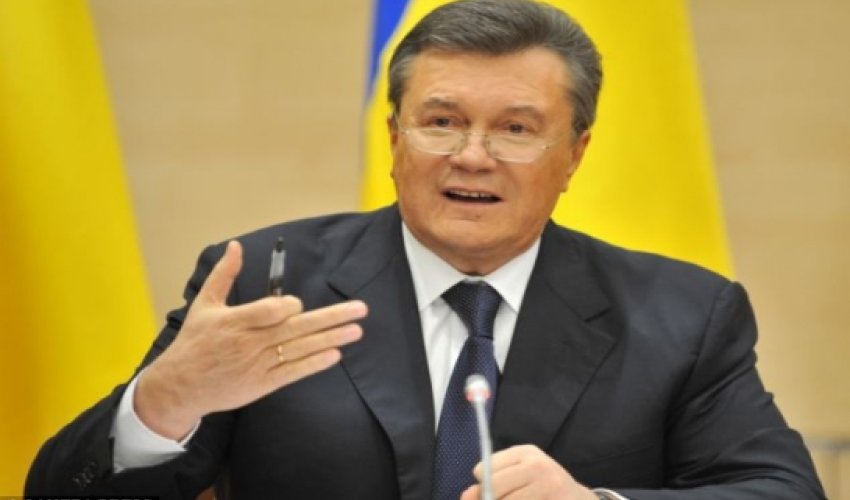
His condition was said to be 'grave', Moskovsky Komsomolets newspaper, known as MK, has claimed, citing unofficial sources.Vladimir Putin dismissed a report earlier this week that Yanukovych had died from a heart attack in the Russian city of Rostov-on-Don. On Tuesday, the Kremlin leader said his former ally was 'alive and healthy', and that he had met him several days earlier.However, Yanukovych has not been seen in public since giving a rambling press conference in Russia one week ago.Putin also claimed the former leader would have been killed if not for his rescue in Sevastopol by Russian forces.Today the newspaper said: 'According to an MK source, Yanukovych may have had a heart attack. His condition is assessed as grave.'The name of the Moscow hospital was not given.'So far there has been no official confirmation,' stated the newspaper.Yanukovych is the subject of a formal request by the authorities in Kiev for extradition to face an investigation for ordering his security forces to shoot unarmed protesters in Kiev last month. He denies the allegations.Russia believes Yanukovych remains the legal president of Ukraine. Putin agreed to give him sanctuary after he was toppled.'The legitimate president, purely legally, is undoubtedly Yanukovych,' said Putin on Tuesday. 'I think he has no political future - I told him that. As for playing a role in his fate, we did that purely from humanitarian reasons.'Meanwhile, the speaker of Russia's upper house of parliament has today dismissed suggestions there would be war between Russia and Ukraine after President Putin said he had the right to invade if the situation in Ukraine worsened.'It's complete nonsense, it absolutely does not reflect our intentions, the feelings of empathy and the pain we feel for the Ukrainian people,' said Valentina Matviyenko, head of the Russian Federation Council.'We are absolutely sure that there will never be a war between the two brotherly nations.'She also said Crimea's parliament has the right to hold a referendum on the region's future status.The parliament in Ukraine's southern Crimea region said on Thursday it would hold a referendum on whether the region should join Russia on March 16.Matviyenko said: 'Yesterday we learned about the historic decision taken by the Crimean parliament to hold a referendum on accession, on entry into the Russian Federation.'Without a doubt, the Crimean parliament, as a legitimate authority, has that right ... The sovereign right of the people to determine their future.'Foreign ministers from central Europe, the Baltics and Nordics today condemned Russia's military intervention in Ukraine and a planned referendum planned by Crimea's government, calling for the EU to send an observation mission to Kiev.The group of countries, many of them sharing land borders with Russia or the Ukraine and living with the memory of Soviet rule, have taken a tough line in the face of Moscow as the crisis has escalated.'Nordic and Baltic countries and the Visegrad countries' foreign ministers condemned today ... the attack on Ukraine's sovereignty and territorial integrity, and also condemned the illegal referendum on the joining of Crimea with Russia,' the ministers said in joint statement from the meeting.Foreign ministers from Poland, Czech Republic, Slovakia and Hungary, known as the Visegrad Four, and from the Nordics and Baltics met at the Estonian town of Narva on the Russian border.Polish Foreign Minister Radoslaw Sikorski said the European Union needed to strengthen its defence policy and upgrade crisis management capabilities in the wake of the events on its borders.'It is a challenge we did not wish for, but is knocking at our doors,' he said. The Council of Europe, the pan-European human rights watchdog, is offering to investigate violence and the treatment of minorities in Ukraine to try to defuse mounting tensions between Kiev and Russia, Austria has said.Sebastian Kurz, the foreign minister of Austria, which holds the revolving chair of the 47-member Council until May, told Reuters on Friday that he and the Council's secretary general would visit Kiev on Monday to offer its services in the conflict.Both Russia and Ukraine are members of the Council of Europe, which Kurz said had credibility and expertise in supporting minority rights. He called the Ukrainian parliament's repeal of a law making Russia a recognised language in some regions 'an absolute mistake'.Asked how Russia had reacted so far to the mediation offer, Kurz said: 'At least there have been no negative voices in the Council of Europe from the Russian side.'The Vienna-based Organization for Security and Cooperation in Europe (OSCE) is also trying to mediate in Ukraine.However, dozens of military observers from OSCE members invited by Ukraine to monitor the situation in Crimea had to turn back on Thursday after failing to get past roadblocks.The OSCE, a pan-European forum for security issues that was set up during the Cold War, is also trying to put together a 'contact group' of leading players in the Ukraine crisis and to arrange a broader monitoring mission for Ukraine.Earlier today, France's foreign minister said if a first round of sanctions did not succeed against Russia in the wake of its military intervention in Ukraine, a second could follow, targeting Russian businesses and people close to President Vladimir Putin.European Union leaders have urged Russian president Vladimir Putin to enter direct talks with the Ukrainian government, warning of 'far-reaching consequences' for relations with Moscow if there is any further escalation.At emergency talks in Brussels, leaders of the group of 28 states agreed on a limited package of sanctions to take immediate effect with the threat of further measures - including asset freezes and travel bans - unless there was swift action to end the stand-off.But French foreign minister Laurent Fabius today told France Info Radio: 'If there are not very swift results, there will be new measures aimed at those responsible and Russian businesses. It could be freezing assets, it could be cancellations, it could be refusing visas,' he added, without elaborating.Fabius called the situation in Ukraine 'a serious crisis, maybe one of the most serious since the Cold War'.On Thursday, the local parliament of the Crimea region, where Russian forces have seized control, voted to leave Ukraine and ask to join Russia in a direct challenge to Ukraine's new government in Kiev.Fabius said any new move by Russia to bring Crimea, which has an ethnic Russian majority, formally under its control could have 'grave consequences' for relations between Russia and Europe.'There will be no more international stability if a region... because it's solicited by a neighbouring country, can decide to change its borders and attach itself to its neighbour,' Fabius added.Any deterioration of economic ties between Russia and its trading partners could be a 'very big blow' to Moscow, Fabius said, adding that any new sanctions could target Putin's inner circle.An emergency EU summit on Thursday resulted in a suspension of talks with Moscow on visas and a new investment pact, but warned of tougher steps if there was no negotiated solution to the Ukraine crisis.U.S. President Barack Obama meanwhile ordered sanctions against figures responsible for the military intervention in Ukraine, including travel bans and a freezing of their assets in the United States, although a U.S. official said Putin was not on the list.Putin has said Russia and the United States still stood far apart over Ukraine, but the two countries should not sacrifice relations over a disagreement on an individual, albeit very important, international problem.In a statement issued by the Kremlin on Friday, the Russian leader told U.S. President Barack Obama in a telephone call on Thursday that Ukraine's new leaders, who had come to power in an anti-constitutional coup, had imposed 'absolutely illegitimate decisions on the eastern, southeastern and Crimea regions'.(dailymail.co.uk)ANN.Az
























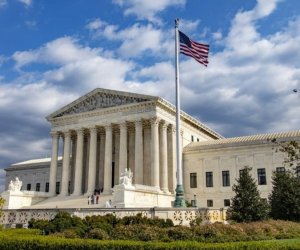
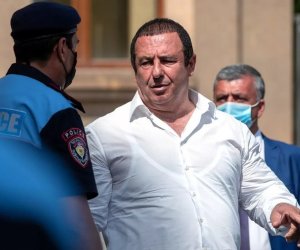
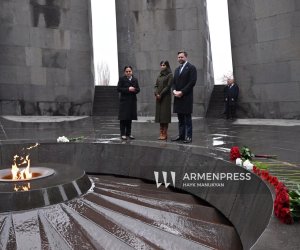
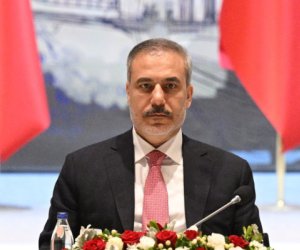
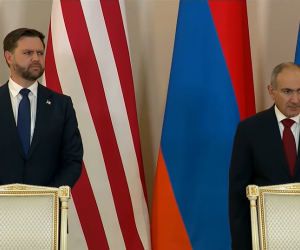
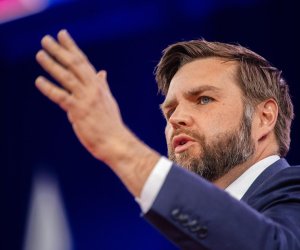
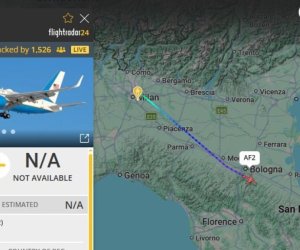
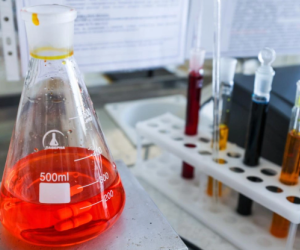
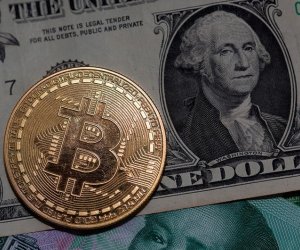



 Photo
Photo 



 Video
Video 

